1 Art
Cause and effect fascinate me, how touching one little thing all by itself can somehow influence (at minimum) another thing, maybe even a world a way. This video at Behance features the performance art of Brock Labrenz in which he moves amidst tiny weights hanging from slight filaments all over a room. His movement in one place creates an invisible force in another, varying from dance-like to puppeteer precision to fighting off a swarm of bees. My favorite part? Starting right around 1:40, reaching for all he’s worth. Enjoy. And let it inspire you to something.
2 News
One reads the news sometimes and wonders if it’s fiction. And one reads the news sometimes and wishes it were fiction. And then sometimes one reads the news about fiction and wonders how to process it because one wasn’t given enough fiction to read in school. At least that’s how it might turn out if certain policyholders have their way. Standards adopted in a majority of states call for an upcoming increase in non-fiction reading, which is expected to come at the expense of fiction reading. Critics find this to be a less than novel idea.
In other not-so-novel ideas (that’s called milking the pun), we hear that the U.S. Supreme Court is expected to rule on a case involving the legality of selling used books. Yes, that’s what I said. The way the argument is posited, in some cases, the book you bought and paid for may not be yours to do with what you wish. In fact, according to opponents, libraries and even the Founding Fathers would have been in violation of copyright laws if the ruling had been in effect in their day. Before the justices hear this case, we might want to check for receipts on the lawbooks lining the shelves in their offices and make sure they didn’t pick them up from a yard sale or an Amazon reseller.
3 Publishing
How many poets (or poems) constitute a glut? And what if we have one? With reports of 20, 000 poets actively publishing and over 100, 000 poems appearing every year in journals (online and print), are we there yet? And if we do have a glut, then what? Listen in on this provocative discussion that tries to address the question, “What happens if everyone is a poet?”
(Of note: there are at least three people I know of on my cul-de-sac who are not poets. So we do still have some time to resolve this question before we reach the red-threat level of “everyone”?)
4 Poetry at Work
Wouldn’t it be cool to read a poem a day? (Wait, I do that. I get Every Day Poems in my inbox every morning.) Well then, wouldn’t it be cool to work in a place where colleagues read poetry together every day? (Wait, I work at Tweetspeak. I read poetry with my colleagues at least some days.) So, I think we can all agree I have a cool job. But I’m not the only one. Staff at the Poetry and Literature Center know the value of reading poetry with coworkers, and have made a daily practice of it. Not fair, you say? It’s a poetry center at the Library of Congress? I mean, the poet laureate of the United States works there. But if you work in a regular job—say, a law firm or a Fortune 500 company or, oh, I don’t know, an insurance adjusting firm, how on earth are you supposed to read poetry with your colleagues?
Well, we figure you could just start doing it. You know, leave a little poetry laying around. Keep a collection of poems on your desk. Subscribe to Every Day Poems via your work email and forward a poem to a colleague once in a while. We’re gearing up for the first annual Poetry at Work Day on January 15, 2013. And we’re looking for great ideas to take your poetry to work.
After you’ve read some poetry at work, maybe you’d even start to write it. Former poet laureate Philip Levine wrote What Work Is exploring manual labor, the lack of work, and understanding the deep meaning of work:
You know what work is—if you’reold enough to read this you know whatwork is, although you may not do it.
You can read the rest of Levine’s poem at Poetry Foundation. And then, let’s say you actually do work in the insurance adjustment business. You might find yourself writing poems about that too.
5 Creativity
We all want to optimize our creativity—harness energy, capture ideas, produce all that amazingness we know lies within us. We read articles, try out new methods, buy gadgets to make us more productive. You can even manage your day around your most productive time periods. Take a look at this article at 99u on that very concept—when to do your most important task. (But really? The best part of the article might be the very first comment.) And listen, if you do want to get that lawn mowed, our own Claire Burge has a brilliant model using the Master List to focus your best energies on your most important tasks in this article at LifeHack.
But know this: some mornings, you will get up and just not feel like mowing the lawn or working on your master list. Those days, you should brew your favorite hot beverage, take your blanket and a book to the sofa and rest in the comfort that even Charles Darwin had terrible, horrible, no good, very bad days when he couldn’t do anything right and just hated everybody too.
6 Write-It
There is the age-old question of whether, if a tree falls in the woods, and no one is around to hear it, does it make a sound. And the same could be asked of poetry, to a great degree, if no one is around to read it, because of the significance of a reader’s—and not just the poet’s—engagement with the poem. A recent column at the New York Times Opinionator blog explored this question through the curious phenomena of “found” poems filtering out of Craigslist’s “Missed Connections.” It’s a thought-provoking, and delightful, exploration of a poetry form we play with a lot here at Tweetspeak. Maybe you’d like to sift through some of those “Missed Connections” yourself and see if you can break the lines into a little piece of poetry.
7 Poems
The gear change we just took from November’s surrealist theme to haiku has given me a bit of poetic whiplash. A week ago we were reading poems like Marcy Johnson and Yvonne Robery’s “Pants of Existence.” (Yes, it takes two to write poems like this.)
Burn this light mymy, o my—not in Kansas any less thanthis place of fur spanglesdangling on the anklesof fate likebells of hells,
(Open up Every Day Poems’ clothes closet to find the pantlegs to this poem)
And then all of a sudden we were reading poems of 17 compact, serene syllables starting with Ralphie’s Haiku. You might find us to be a lot of things here at Tweetspeak. But predictable might not be at the top of your list.
And in that spirit, I have no smooth segue to this poem by Jill Alexander, but I read it last week, and loved it, and I’m just going to include it in the Top 10 this week because I want to.
A clementineOf inclement climateGrows tart.
Read the rest of Alexander’s poem at Poetry Foundation.
8 People
I started reading The English American last week. I haven’t laughed like that since I saw the author, Alison Larkin, perform part of the one-woman show that is the basis for the novel at the Berkshire WordFest this past fall. Larkin tells the story of traveling from England, where she was raised by adoptive parents, to America to meet her birth parents. Berkshire Magazine recently printed an interview with the hilarious and thoughtful Larkin.
Speaking of delightful interviews, don’t miss this one published at The Believer with the late, great curmudgeon Maurice Sendak, from a few months before his death. I loved this part:
BLVR: Who told you you were talented?
MS: We had a cousin. We were not supposed to like her, because she was a communist. She was very plain. I adored her, and me and my sister would steal off and go to her house. She sat and talked to me and told me that I knew how to draw and that I could be an artist, or anything, and I thought if she was in the world, then good was in the world. Nobody had spoken to me like that. She died when she was young. She married a terrible non-Jew, a really ghastly person. She was the only person who tried to tell me there was more to life than this cuckoo family.
9 Books
Do you like slow walks through rocky outcroppings hand in hand with a long book? This might be the thing for you. L.L. Barkat’s thoughtful review of Robert Macfarlane’s The Old Ways: A Journey on Foot appeared last week in Books and Culture. Says Barkat of Macfarlane’s journey—on foot and with the reader:
Life needn’t be a series of resistances. That can be fatiguing and not always productive. But perhaps life should involve some level of boundary-crossing, else we live a kind of Newspeak existence. For Macfarlane, such crossings were harder to come by; here is a man who has been free to walk and boat, and we can see the chronicle of this freedom—from England to Scotland, Spain to Tibet, and places in between. So we find him making his crossings in intimate physical ways, such as taking a landscape barefoot or in the torrential rain.
10 Sound n Motion
This feels wrong, somehow, following Macfarlane’s sober journey, to end with such a thing as the book trailer for Francesco Marciuliano’s I Could Pee on This: And Other Poems by Cats we spotted at Book Riot. But, again, I’m going to resort to the whiplash transition once again and post it here anyway. I’ll spare you the drama of my own cat stories, but I’m pretty sure that one day, I’ll find a scratched-up, peed-on notebook in my basement filled with faint whiskers of haiku. Again, enjoy. Maybe be inspired. To what, we don’t know.
Cover photo by Derrick T. Creative Commons license via Flickr. Article photos by Claire Burge. Used with permission. Post by Will Willingham.
__________________
Buy a year of Every Day Poems, just $5.99— Read a poem a day, become a better writer. In December we’re exploring the theme Haiku.
- Earth Song Poem Featured on The Slowdown!—Birds in Home Depot - February 7, 2023
- The Rapping in the Attic—Happy Holidays Fun Video! - December 21, 2022
- Video: Earth Song: A Nature Poems Experience—Enchanting! - December 6, 2022
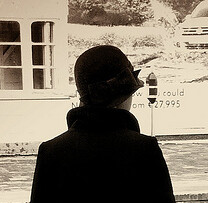
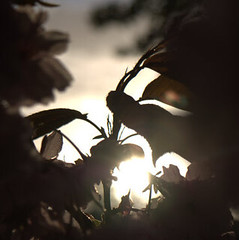
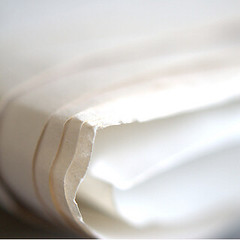

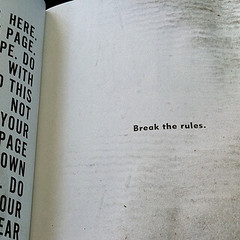
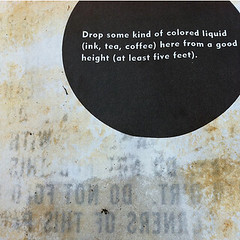





Maureen Doallas says
Cat scratchings on pole
Mark-making a place to write
Whiskers in haiku.
—————
Given all I’ve heard about Craigslist, “missed connections” might be for the better.
L. L. Barkat says
Loved the pun. And the milking of the pun. The red poet threat on your cul-de-sac. And the pantlegs of the poem.
As for transitions, yours are delightful. Even when they include a 180 🙂
Donna says
LOVE this!! And laughed out loud at the CAT knowing that the throw pillow AND the lamp are, indeed, characters! LOL!